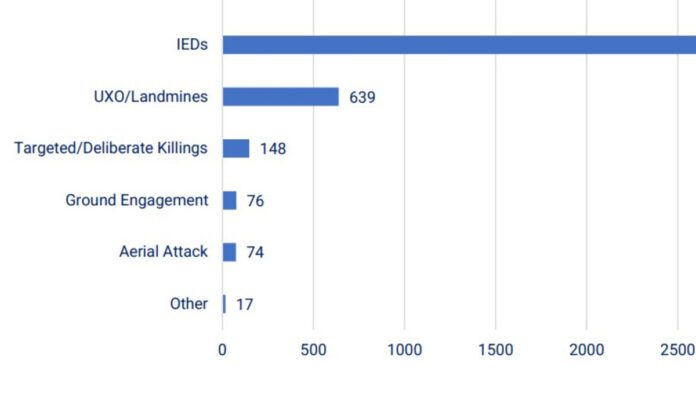The United Nations Assistance Mission in Afghanistan (UNAMA) has released a report highlighting concern regarding the rise in IED (Improvised Explosive Devices) attacks. Despite an overall decline in civilian casualties since the Taliban takeover, IED attacks have increased, particularly against places of worship and the minority Hazara community.
The report reveals that out of 3,774 civilian casualties recorded between August 15, 2021, and May 30, 2023, three-quarters were caused by indiscriminate IEDs in populated areas, including schools, markets, and places of worship. The majority of these casualties were attributed to the self-identified Islamic State in Iraq and the Levant – Khorasan Province (ISIL-KP), whose IED attacks significantly rose following the Taliban takeover. Notably, suicide attacks by ISIL-KP and other actors were the primary cause of IED-related civilian harm.
Attacks on civilians and civilian sites have drawn condemnation from UNAMA’s Fiona Frazer, who urged the de facto authorities to conduct thorough and transparent investigations into IED attacks affecting civilians. The report highlights a significant increase in civilian harm resulting from IED attacks on places of worship, particularly Shia Muslim sites, accounting for more than one-third of all civilian casualties during the reporting period. The predominantly Shia Muslim Hazara community also faced attacks in schools, streets, and public transportation, resulting in 345 casualties.
To prevent further incidents, the report recommends the implementation of protective measures in places of worship, educational facilities, and Hazara Shi’a communities. These continued attacks exacerbate Afghanistan’s ongoing humanitarian crisis, with victims of violence struggling to access essential support due to declining donor funding for vital services.




